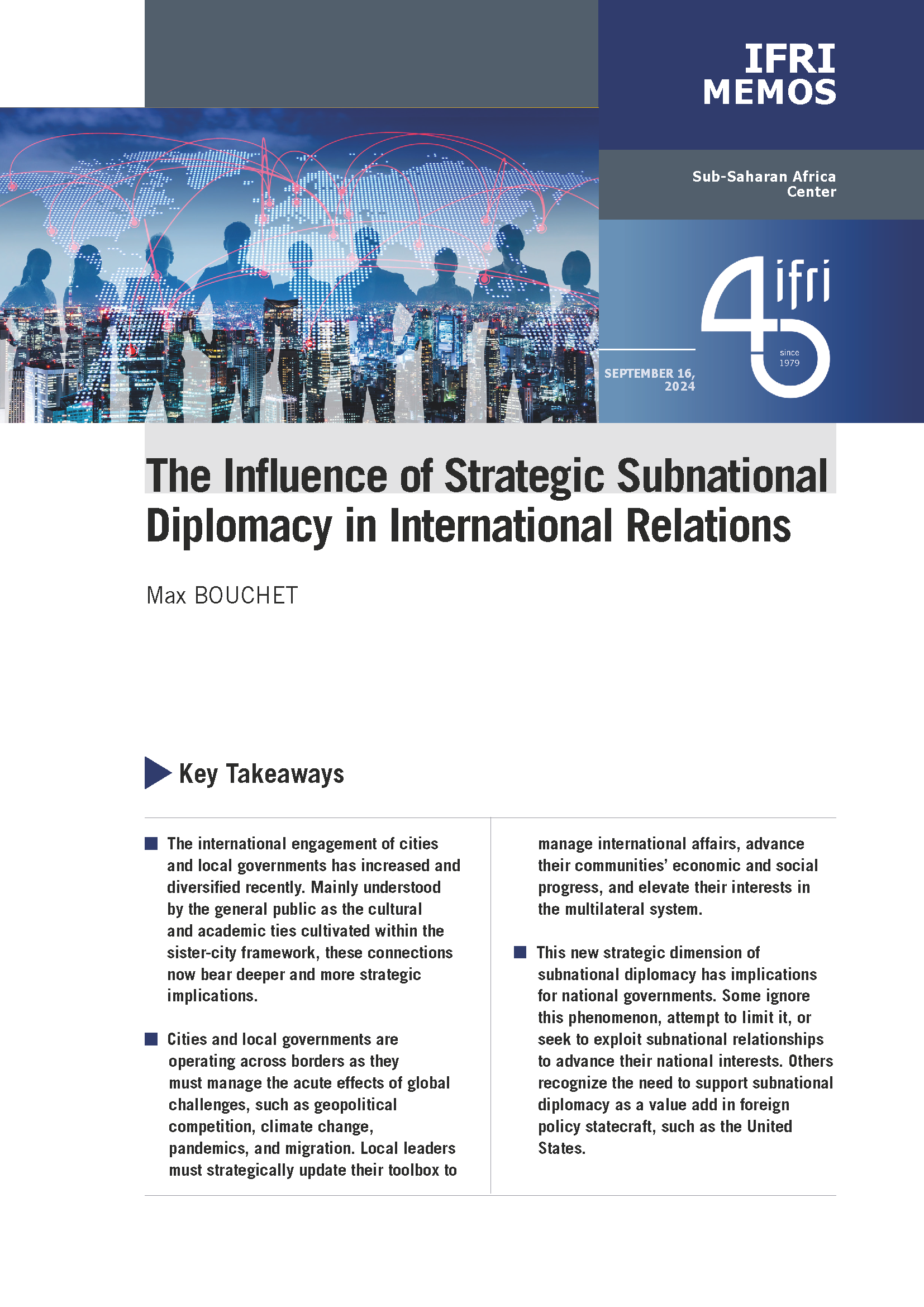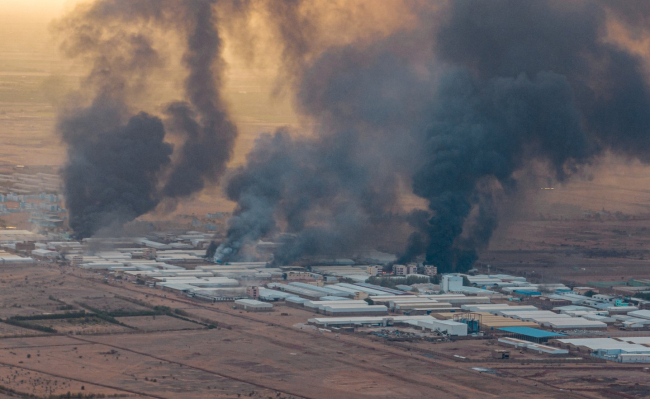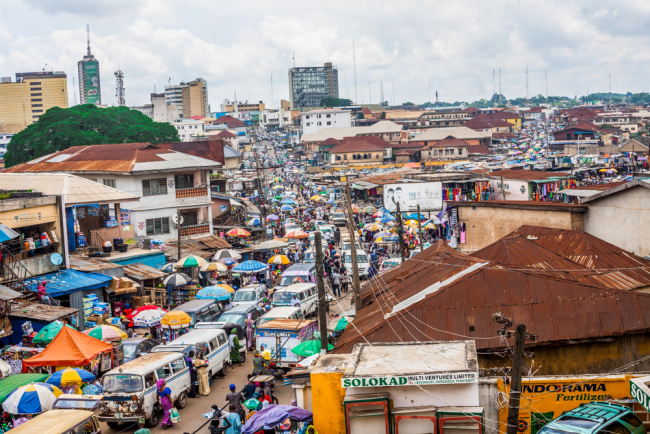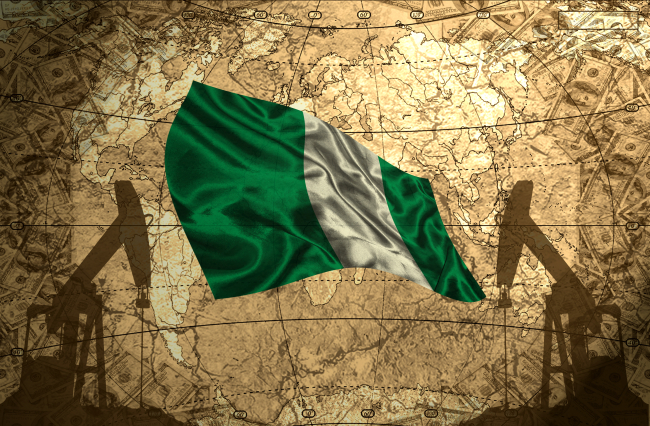Algeria and the Crisis in Mali
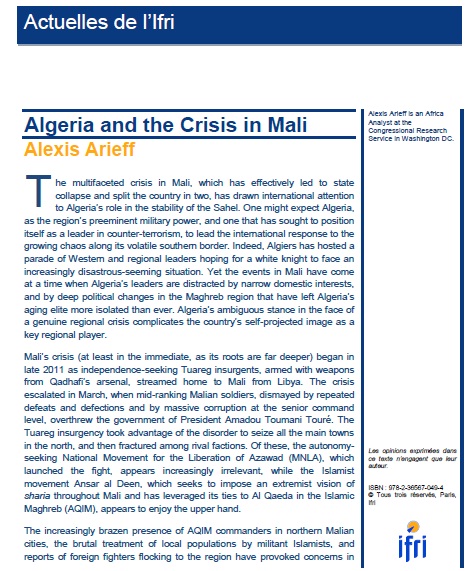
The multifaceted crisis in Mali, which has effectively led to state collapse and split the country in two, has drawn international attention to Algeria’s role in the stability of the Sahel. One might expect Algeria, as the region’s preeminent military power, and one that has sought to position itself as a leader in counter-terrorism, to lead the international response to the growing chaos along its volatile southern border.
Indeed, Algiers has hosted a parade of Western and regional leaders hoping for a white knight to face an increasingly disastrous-seeming situation. Yet the events in Mali have come at a time when Algeria’s leaders are distracted by narrow domestic interests, and by deep political changes in the Maghreb region that have left Algeria’s aging elite more isolated than ever. Algeria’s ambiguous stance in the face of a genuine regional crisis complicates the country’s self-projected image as a key regional player.
Mali’s crisis (at least in the immediate, as its roots are far deeper) began in late 2011 as independence-seeking Tuareg insurgents, armed with weapons from Qadhafi’s arsenal, streamed home to Mali from Libya. The crisis escalated in March, when mid-ranking Malian soldiers, dismayed by repeated defeats and defections and by massive corruption at the senior command level, overthrew the government of President Amadou Toumani Touré. The Tuareg insurgency took advantage of the disorder to seize all the main towns in the north, and then fractured among rival factions. Of these, the autonomy-seeking National Movement for the Liberation of Azawad (MNLA), which launched the fight, appears increasingly irrelevant, while the Islamist movement Ansar al Deen, which seeks to impose an extremist vision of sharia throughout Mali and has leveraged its ties to Al Qaeda in the Islamic Maghreb (AQIM), appears to enjoy the upper hand.
The increasingly brazen presence of AQIM commanders in northern Malian cities, the brutal treatment of local populations by militant Islamists, and reports of foreign fighters flocking to the region have provoked concerns in the region and in Western capitals that northern Mali could become a launching pad for transnational terrorist attacks. Some additionally fear that the ideology that ostensibly motivates Ansar al Deen and AQIM could gain currency beyond Mali’s borders. Meanwhile, Mali’s political class and the Economic Community of West African States (ECOWAS) have struggled to reconstitute any semblance of an effective government in Bamako.

Also available in:
Regions and themes
ISBN / ISSN
Share
Download the full analysis
This page contains only a summary of our work. If you would like to have access to all the information from our research on the subject, you can download the full version in PDF format.
Algeria and the Crisis in Mali
Related centers and programs
Discover our other research centers and programsFind out more
Discover all our analysesThe Influence of Strategic Subnational Diplomacy in International Relations
The international engagement of cities and local governments has increased and diversified recently. Mainly understood by the public as the cultural and academic ties cultivated within the sister-city framework, these connections now bear deeper and more strategic implications.
Gulf States: A Paradoxical Economic Lifeline for Sudan
For decades, Gulf states have provided crucial financial assistance to Sudan. Gulf interest in Sudan is driven by economic benefits and geopolitical competition, though each country has its own interests and approach.
Understanding Intermediate Cities in Nigeria: The Cases of Ibadan and Abeokuta
Nigeria is known for its rapid demographic and urban growth.
Nigeria’s Oil Wealth and International Relations: Multilateral and Bilateral Lending and Decolonial Therapies
Before Angola surpassed Nigeria as Africa’s top oil producer in April 2023, Nigeria was Africa’s main oil exporter even before the country gained independence in 1960.


